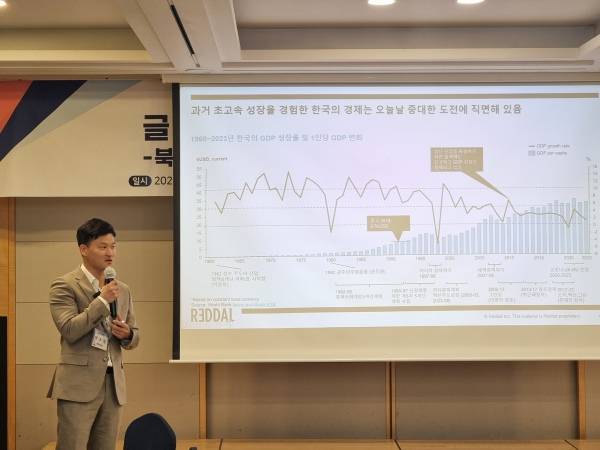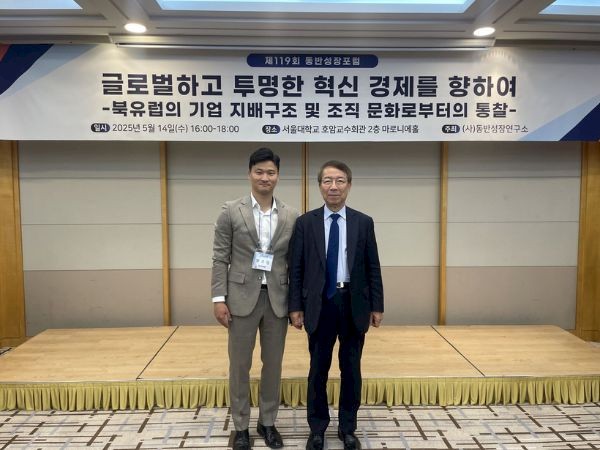Advancing South Korean shared growth and global competitiveness
12 September 2025 — At the 119th Shared Growth Forum, Holim Wang, Manager at Reddal Korea, shared perspectives on advancing Korean economy by enhancing the competitiveness of its SMEs and lessen the dependence on conglomerates.

Download this post (PDF)
At the 119th Shared Growth Forum, hosted by the Korea Institute for Shared Growth (KISG) at Seoul National University, Holim Wang, Manager at Reddal Korea, shared perspectives on how Korea can advance its economy.
His key messages highlighted the need to promote globally competitive and innovative SMEs, reform corporate governance, and foster a transparent and collaborative work culture.
The Shared Growth Forum, initiated in 2010 by Dr. Un-Chan Chung, former Prime Minister and Professor Emeritus at Seoul National University, embodies the philosophy of “grow together, share together”. Its mission is to expand economic opportunities while ensuring fair and sustainable distribution of growth. Dr. Chung later also joined Reddal CEO Forum in Seoul as a keynote speaker, discussing “Innovation and shared growth in the age of the AI revolution”.


Read more about Holim’s presentation at the Shared Growth Forum, which is available in Korean via several media outlets:
-
인천일보 아카데미 (Incheon Ilbo Academy): 한국경제, ‘혁신 중소기업’서 성장동력 찾아야
-
소셜밸류 – 사회가치 공유 언론 (Social Value): 정운찬의 동반성장연구소, 중소기업 자립도 제고 통한 성장 해법 제시
-
시사오늘 (Sisaon): 왕호림 레달 한국지사장, “중소기업 경쟁력 높이려면 대기업 의존 구조 타파해야”
***
Following the forum, Holim was interviewed by The Chosun Ilbo (조선일보) for a feature on Nordic economies. In the article, he underscored the importance of Korea developing more “born global” companies, noting that:
“Companies in Northern Europe target the global market from the outset because their domestic market is small. In contrast, Korean companies often prioritize the needs of large conglomerates, likely due to the relatively larger home market, which results in weaker global competitiveness.”
The full article is available in Korean and is accessible via 세계 인구 0.3%에 불과한 북유럽 4국 기업들, 글로벌 챔피언된 까닭은?
Tags
South Korea, South Korean market, Korean economy, Growth strategy, Ecosystem development, Korean SMEs








